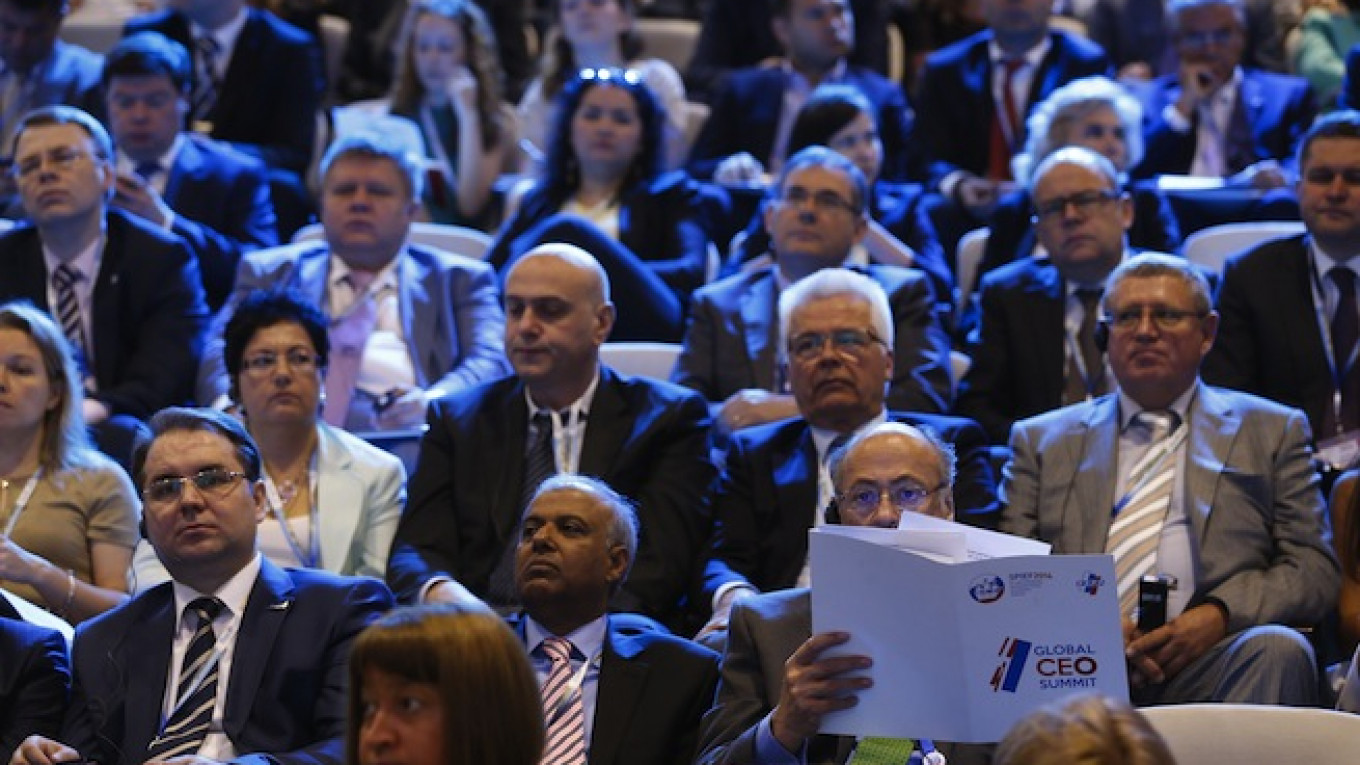ST. PETERSBURG, Russia — As Russia's economic growth sputters to a halt, the mismatch between education and job requirements has become an even more daunting challenge for the Russian and international business communities.
"There is an international war over talent," said David Gray, managing partner at PricewaterhouseCoopers Russia, speaking at the St. Petersburg International Economic Forum. "The business community thinks that times will get better, that there will be economic growth. But everybody remains worried about acquiring the right talent."
PwC's 2014 "talent challenge" survey of CEOs from 69 countries found that 63 percent were concerned about the ability of their company to recruit talented staff — a 17 percent rise from PwC's 2009 survey.
According to the business education community, the incongruence between companies' needs and the competencies available in the work force is especially acute in Russia. Soviet heritage — despite its strengths in producing engineers — is one factor contributing to this mismatch.
"No one did anything about education for almost twenty years after the collapse of the Soviet Union," said Anatoly Karachinsky, president of Russian software and IT services company IBS Group. "We have only started making some changes in the past few years and companies struggle to find personnel with specialized skills."
Generational challenges also continue to hinder Russia's entrepreneurial community, according to Dmitry Peskov, director of the branch Young Professionals at the Agency for Strategic Initiatives in Moscow.
"This generation is completely different from the ones we have seen before," Peskov said. "It doesn't see the difference between PR and reality. It wants to feel useful and wear nice suits. They are not rebels, they are happy to follow. We have not made a breakthrough to them."
Despite challenges in creating Russia's own Silicon Valley, certain initiatives nonetheless have contributed to adapting the workforce to corporate needs.
Andrei Sharonov, the dean of Skolkovo, a top management school in Moscow, gave the example of Rosatom, Russia's giant state-owned nuclear corporation. Skolkovo has contributed to the training of the corporation's managers, and Rosatom has its own corporate university to meet its staffing needs.
A Message from The Moscow Times:
Dear readers,
We are facing unprecedented challenges. Russia's Prosecutor General's Office has designated The Moscow Times as an "undesirable" organization, criminalizing our work and putting our staff at risk of prosecution. This follows our earlier unjust labeling as a "foreign agent."
These actions are direct attempts to silence independent journalism in Russia. The authorities claim our work "discredits the decisions of the Russian leadership." We see things differently: we strive to provide accurate, unbiased reporting on Russia.
We, the journalists of The Moscow Times, refuse to be silenced. But to continue our work, we need your help.
Your support, no matter how small, makes a world of difference. If you can, please support us monthly starting from just $2. It's quick to set up, and every contribution makes a significant impact.
By supporting The Moscow Times, you're defending open, independent journalism in the face of repression. Thank you for standing with us.
Remind me later.






